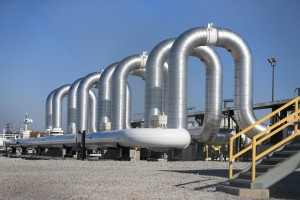SHANGHAI—China stock markets closed for the day less than half an hour after opening on Thursday when shares fell more than seven percent, triggering an automatic “circuit breaker”.
By 9.58am, when the market halted trading, figures showed the benchmark Shanghai Composite Index had slumped 7.32 percent, or 245.95 points, to 3,115.89.
The Shenzhen Composite Index, which tracks stocks on China’s second exchange, had tumbled 8.35 percent, or 178.08 points, to 1,955.88.
The “circuit breaker” went into force at the beginning of the year as part of efforts to reduce volatility on China’s wild bourses, which plummeted in mid-2015, sending jitters through world markets.
It was triggered for the first time on Monday. The system is based on the CSI 300 index, which tracks the largest 300 stocks on the two exchanges. If it falls by five percent, trading is initially suspended for 15 minutes.
“The use of the circuit breaker is the main reason for the falls as investors panicked after seeing it being triggered on Monday,” Phillip Securities’ analyst Chen Xingyu told AFP.
“The circuit breaker has cut off the market liquidity and investors are afraid they won’t be able to sell. The market-selling pressure was originally not this heavy.”
Shanghai dived 6.86 percent on Monday — before trading was suspended — after the release of weak manufacturing data heightened worries about the health of the world’s second-largest economy. That was followed by a 0.26 percent fall Tuesday, before they rallied more than two percent on Wednesday.
READ: China stock markets fall 7%; trading stopped Monday | China stocks lead Asia sell-off, oil up on Middle East fears
On Thursday, authorities lowered the central rate of China’s yuan currency by 0.51 percent to 6.5646 against the US dollar. It was the biggest drop since August, Bloomberg News reported, when Beijing guided the unit down by nearly five percent in a week, in a surprise devaluation.
The concerns over China’s economy have been exacerbated by worries about the looming expiry Friday of a ban on selling by investors holding more than five percent of a firm, but reports have said regulators will delay lifting the measure, which was brought in during the summer’s market rout to prevent further losses.


